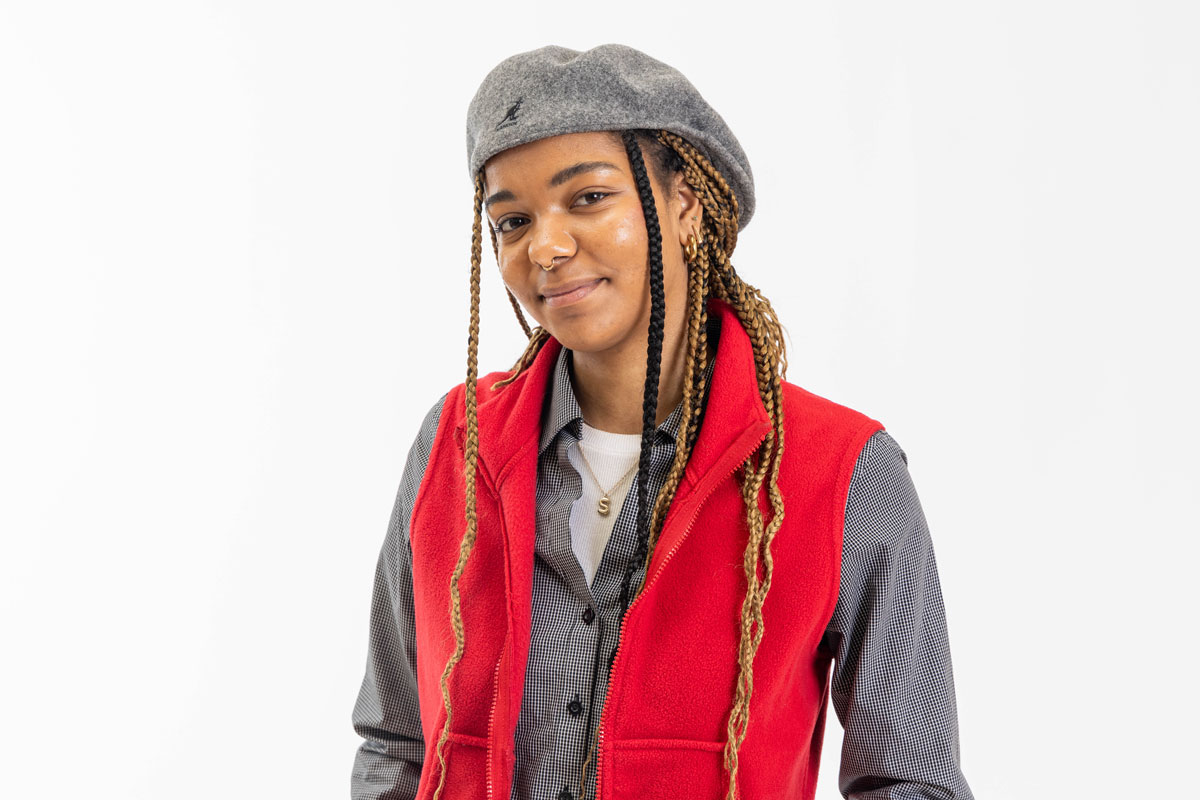Liberating the Narrative
Meet art history major and dance minor Safi Zenger.
Hometown: Irvine, California
Thesis adviser: Prof. Jennifer Sakai [art]
Thesis: “Control Liberate the Narrative: Black Liberation Through Re-Appropriations in Modern Art”
What it’s about: My thesis explores re-appropriation in the practices of six Black artists, who use this technique as a strategy for Black liberation. Their artworks examine the culturally appropriative westernization of African aesthetics, problematize the privileged styles and techniques associated with western canonical masterworks, and ultimately liberate oppressive narratives of Blackness.
What it’s really about: Why is it okay for a Black artist to copy Picasso but not okay for Picasso to copy a Black artist?
Influential class: Prof. Akihiko Miyoshi’s [art] experimental media class was the first time I feel like I was given space to fail in art. It allowed me to expand the predetermined limitations of my own creativity.
Extracurriculars: I was student body president and served other roles in student government every semester at Reed except my last. I cochaired the Black Student Union, served on Honor Council, and mentored in our peer mentoring program, which was probably my favorite job of them all.
Cool stuff: I had a show on the radio station most semesters, which was a lot of fun. I’m pretty convinced my mom was my only regular listener, but it was nice to have an hour of air time to rant about movies and play some music (and receive texts from my mom responding to things I said on-air).
Influential book: If Beale Street Could Talk by James Baldwin. I’m not someone who cries very often, but Baldwin definitely made me shed some tears on the bus. It is such a heart-wrenching story, but it also made me think of how few stories I could recount that were centered on the loving relationships that exist between Black people, whether it be through friendship, family, or romance.
Challenges faced: Reed was not always kind to me whether through implicit or explicit bias. Being student body president gave me a lot of solid avenues for advocating for myself and others when faced with institutional bias. But I think leaning on my support system was the only way I made it through all four years. I always had academic advisors who cared about my well-being (Profs. Kris Cohen [art] and Michelle Wang [art history] were truly the best), and they made it abundantly clear that they believed in my ability to succeed. And I’m lucky enough to be graduating with some really good friends who always helped me find joy in the tougher moments.
How Reed changed me: I’m a lot more confident now in my abilities. I’m more comfortable with the idea that one’s trajectory is not always linear.
Help received along the way: A lot of people have asked me why I chose Reed and my answer is always the same: financial aid. In the past four years, I’ve discovered several other reasons to choose Reed, but none of those really matter if you can’t afford to go here!
What’s next: I will be moving to London to pursue a graduate program in art history.
Tags: Academics, Students, Thesis, What is a Reedie?
